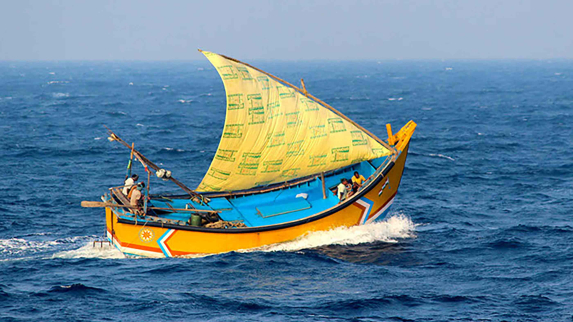New research involving Rutgers professors has revealed that expected, extreme changes in India’s summer monsoon could drastically hamper the Bay of Bengal’s ability to support a crucial element of the region’s food supply: marine life.
The study, published in Nature Geoscience, was conducted by scientists from Rutgers University, the University of Arizona and collaborators from India, China and Europe. To reach their conclusions, the scientists examined how the monsoon, which brings heavy rains to the Indian subcontinent, has influenced the Bay of Bengal’s marine productivity over the past 22,000 years.
Although the Bay of Bengal covers less than 1% of the global ocean, it supplies nearly 8% of the world’s fishery production. Its coastal waters support densely populated regions that rely heavily on marine resources for food and livelihoods.
“Millions of people living along the Bay of Bengal rely on the sea for protein, particularly from fisheries,” said Yair Rosenthal, a Distinguished Professor in the Department of Marine and Coastal Sciences and the Department of Earth and Planetary Sciences at Rutgers University and an author of the study. “The productivity of these waters – the ability of the ocean to support plankton growth – is the foundation of the marine food web. If ocean productivity declines, it will powerfully affect the ecosystem, ultimately reducing fish stocks and threatening food security for coastal communities.” To read the full story.

